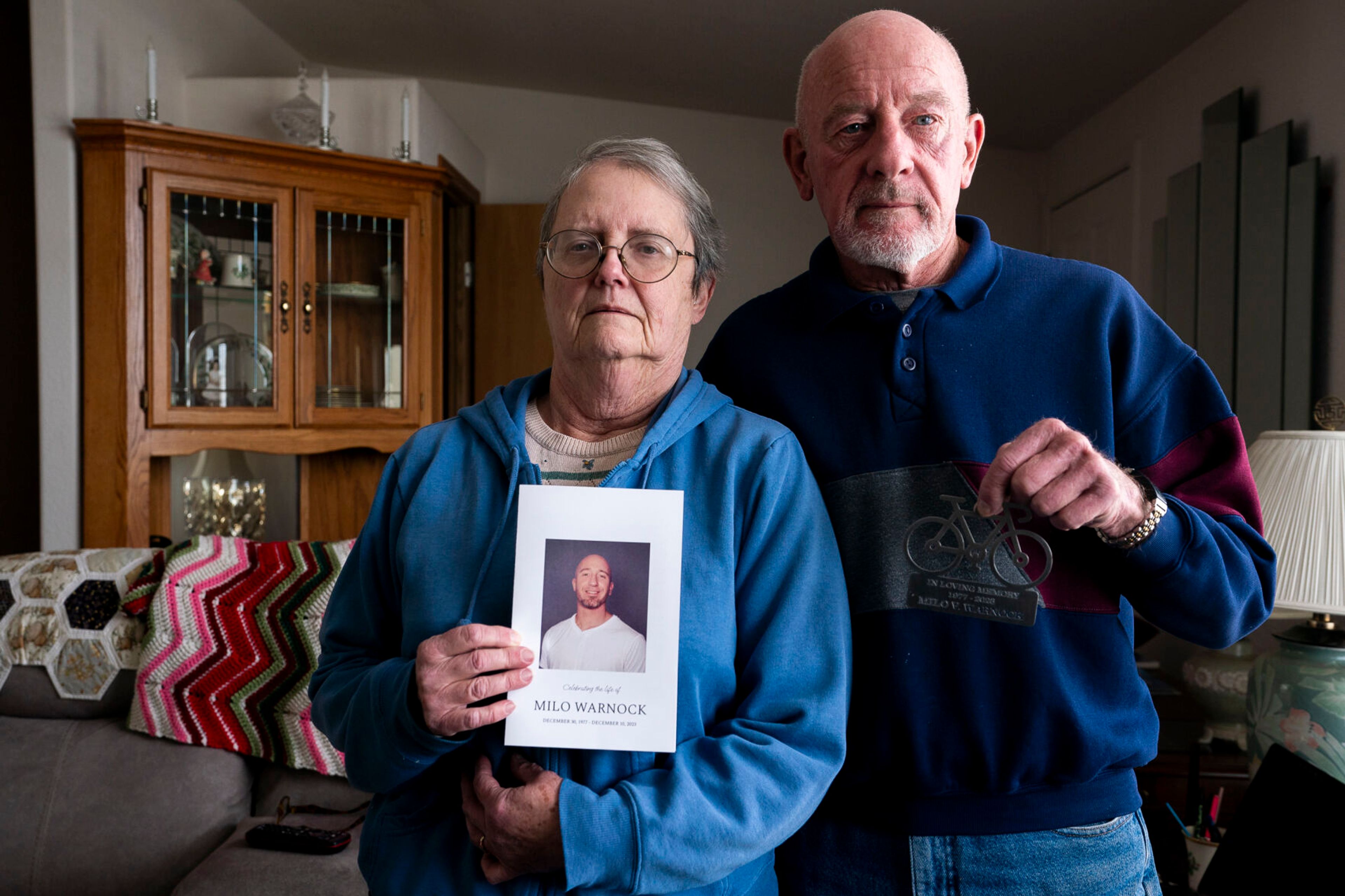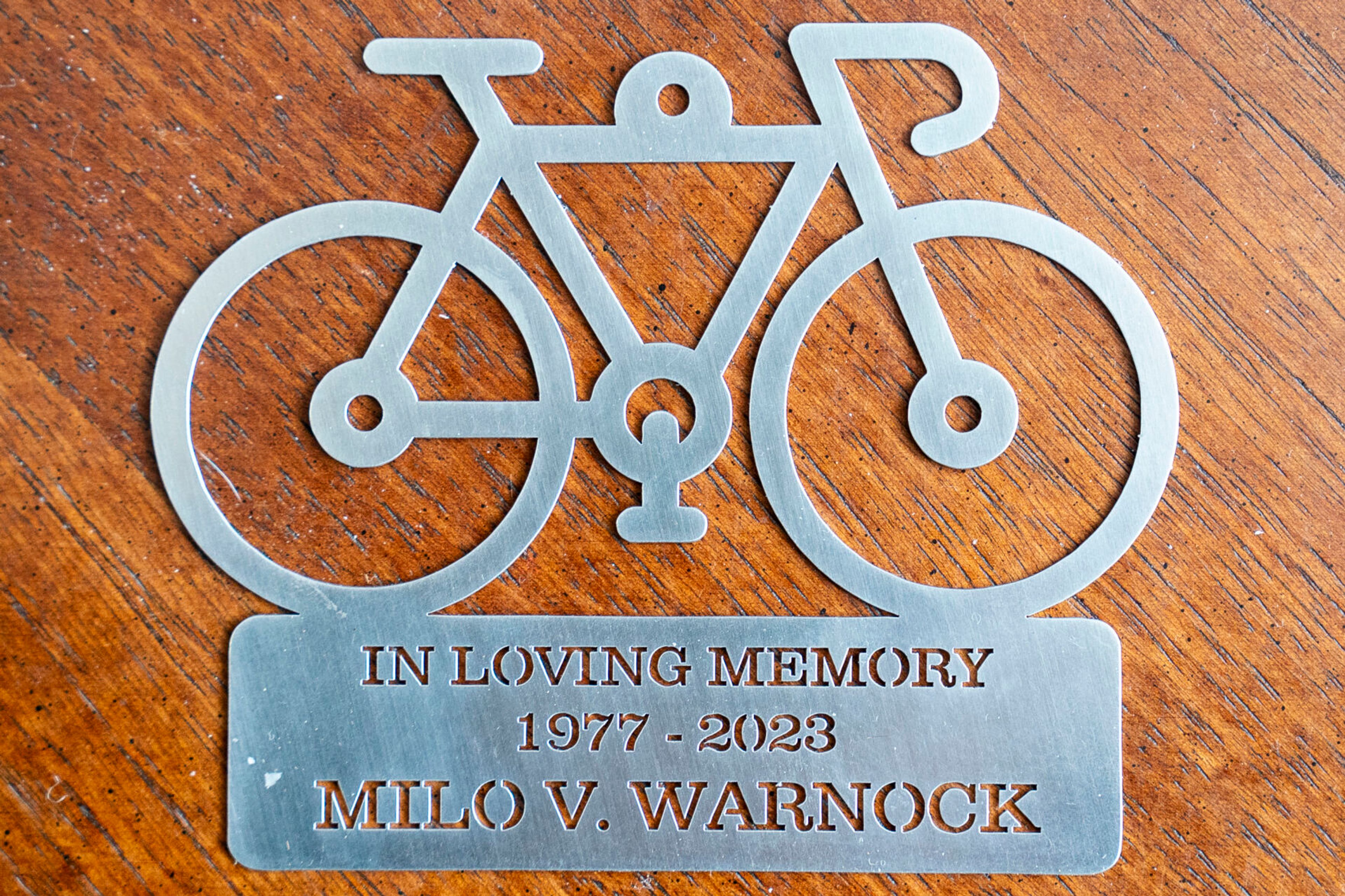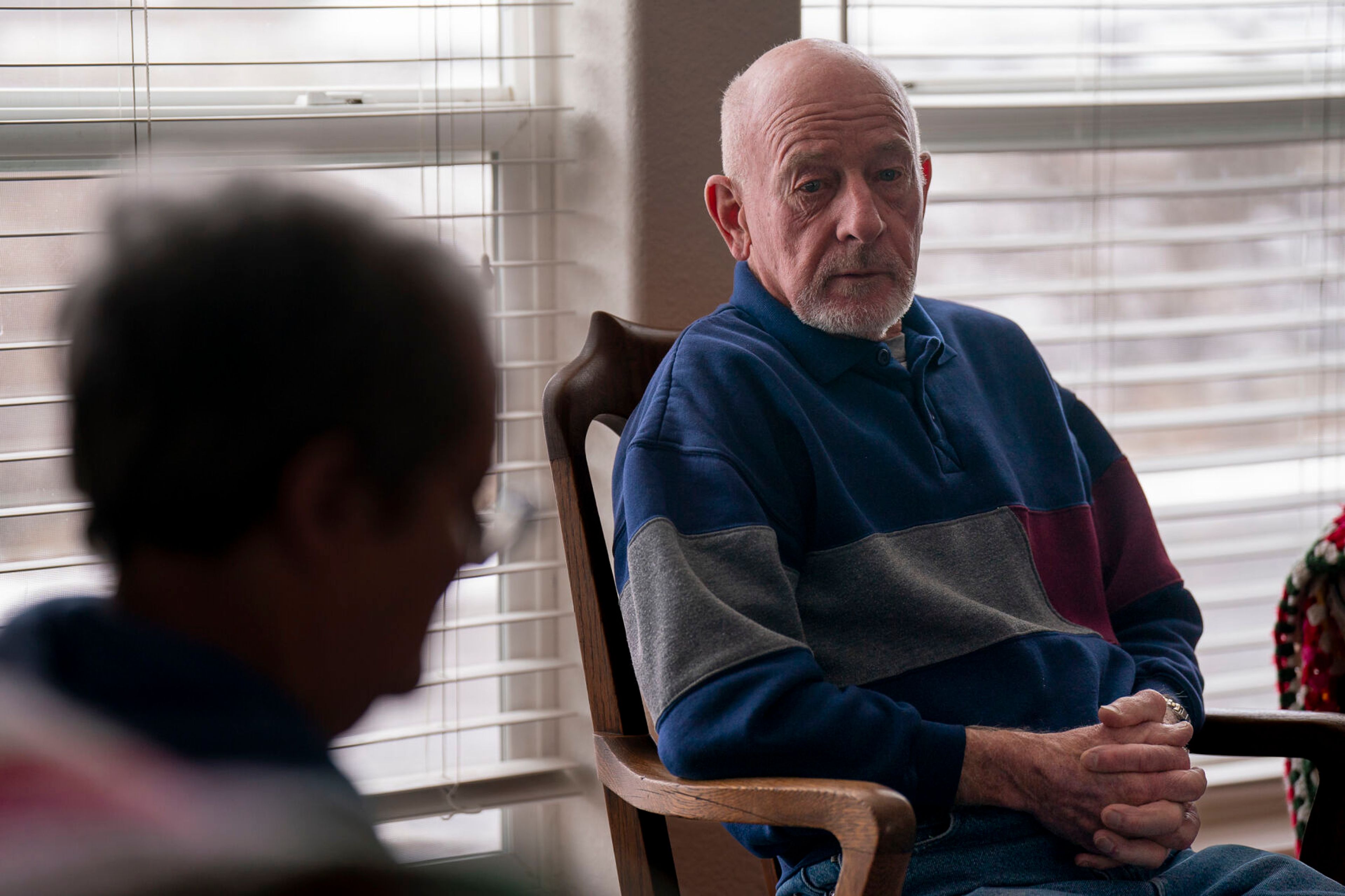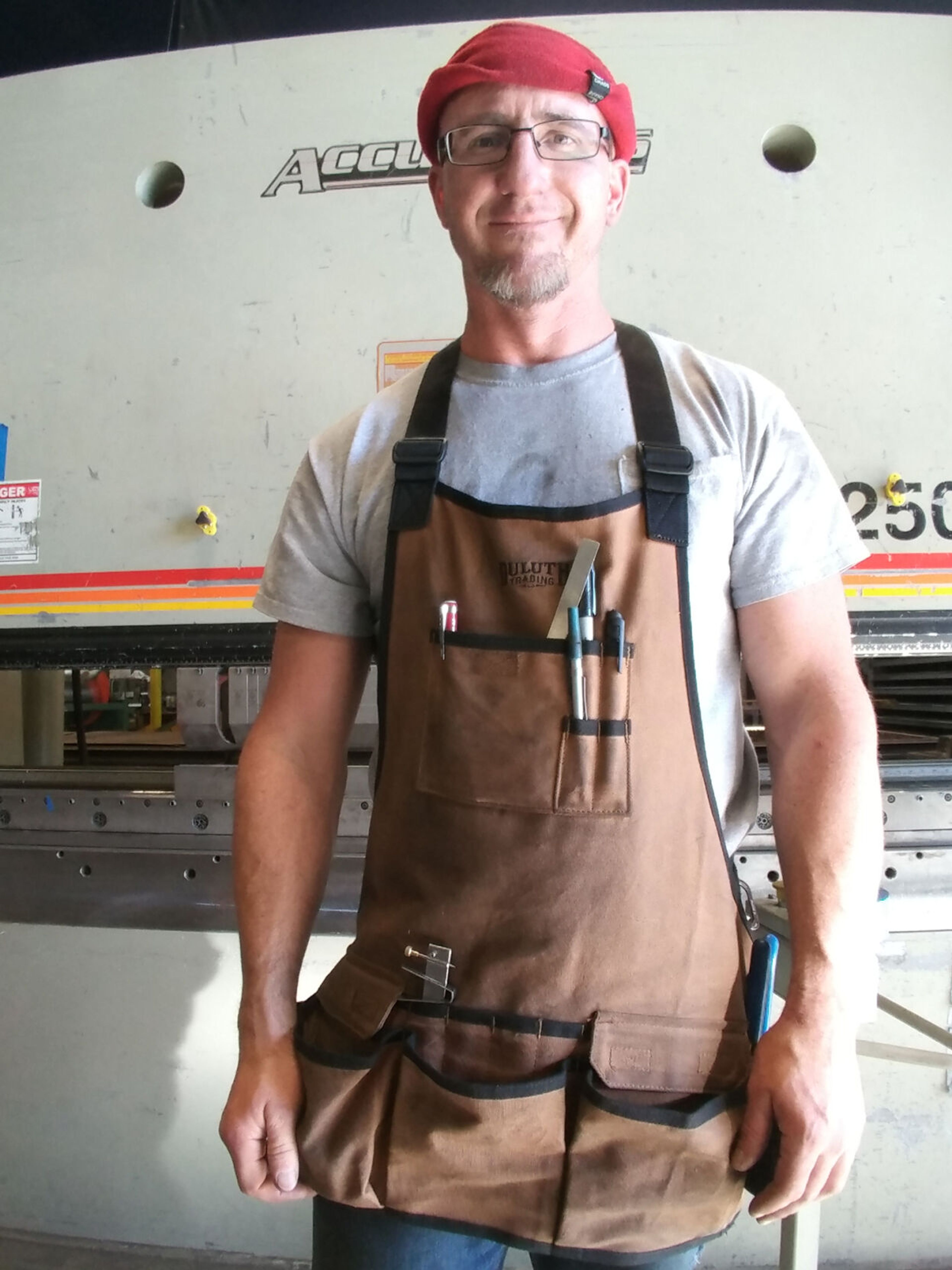Family seeks justice for son slain in Idaho prison
Lewiston native Milo Warnock went from getting a DUI to being killed in an Idaho prison; the family he leaves behind is trying to make sense of it all
Milo Warnock was expected to serve at least two years in prison for a DUI. Instead, he received a death sentence.
Warnock, a Lewiston native and Boise resident at the time of his sentencing, was killed Dec. 10 at Idaho State Correctional Center in Kuna.
His death highlights a number of issues at the Kuna prison complex, which is operated by the Idaho Department of Correction. Some of the issues reported at the maximum security facility at the complex in 2023 included another homicide and a fight involving 31 inmates that took place after Warnock’s death.
No one has been charged in Warnock’s death, but his family was told by investigators that the suspect is James Michael Johnson, who was Warnock’s cellmate, according to documents the family received from the prison.
Idaho State Police communications director Aaron Snell sent an email to the Lewiston Tribune on Thursday stating investigators’ findings will be sent to the Ada County Prosecutor’s Office this week or next for review and possible charges.
Milo’s parents, Kathy and Mike Warnock, of Clarkston, and his sister, Hallie Johnson, of Seattle, question what happened to Milo and they place the blame for his death not only on the man who did it, but also the prison and judicial system.
“There is something wrong. As a loved one, I should have assurances that while my brother is paying his debt to society he will come out alive,” Hallie Johnson said. “I never imagined this outcome.”
Who Milo was
Milo, 45, grew up in Lewiston and graduated from Lewiston High School in 1996. In addition to his sister, he was raised with his brother, Clint, who lives in Lewiston, along with his half-brother, Murray, and another half-brother, Yancey, of Thornton, Colo.
Milo enjoyed reading and writing, even if he was a bad speller, his family joked. He would listen to audiobooks as he worked and hoped to be a writer himself.
He had lived in Boise for about 25 years, earning a living as a sheet metal worker.
A divorced father of one, Milo’s life in Boise revolved around his 23-year-old son, Mason, and his work. His son is disabled and the two worked on bicycles together. Milo was always a cyclist, even when he lived in Lewiston, and it became his main mode of transportation in Boise.
At his celebration of life Jan. 13, Milo’s co-workers, who were like his family, made a bicycle sheet metal plaque for each family member with Milo’s name and date of birth and death.
“The comments we got from the celebration of life from all the people who spoke was that he was a very caring person with a good heart and liked to help people and always very cheerful,” Mike Warnock said.
That’s the Milo that his family and friends knew. While his family also knew that Milo made some missteps, none of his mistakes warranted a prison sentence that would end his life.
“Milo was killed in prison, that’s wrong,” Kathy Warnock said.
DUI charge and case
Milo was charged with a DUI in August 2021 and had been sober for two years until his arrest, his father said. He had previous DUI convictions in 2008 and 2017, making this his third DUI and a felony.
Mike Warnock said that before his DUI charge, Milo had a sleepwalking episode where he drove his car. He was then diagnosed with encephalopathy, a condition that can affect the brain’s mental state, and he was given medication to treat it.
Later, Milo had a similar episode, except this time he went to a liquor store and bought wine, which his father said he didn’t normally drink. Milo was stopped by law enforcement for driving erratically and had a breathalyzer result of 0.109/0.110, with 0.08 being the legal limit, according to the probable cause affidavit.
His case took two years to go through the court system. During that time, he rode his bicycle because his driver’s license was suspended and he had regular urine analysis tests which came back clean.
Milo had been asking for a work release arrangement for his sentence with the support of his employer and he also applied to take part in mental health court in Ada County. At his first appointment, Milo arrived late after getting a flat tire on his bicycle. His appointment was rescheduled and he was told he needed to be there 30 minutes before the appointment to fill out paperwork. Mike Warnock said that Milo completed the paperwork online and thought he didn’t need to be there early. When he showed up 20 minutes late, he wasn’t given another chance.
Milo pleaded guilty and was sentenced by Fourth District Judge Peter Barton on July 23 to serve a minimum two years to a maximum of 10 years in prison.
When Milo was in prison, he was trying to file paperwork seeking a reduced sentence. He was unable to get in touch with his attorney, James Vavrek, of Joe Frick Law.
“No one has apologized (for Milo’s death). No one has said anything,” Kathy Warnock said. “Not the judge or the prosecuting attorney or the warden or Milo’s own attorney.”
While the Warnock family notes that Milo needed to be stopped when he was driving and arrested, they disagree that he earned a prison sentence.
The Tribune attempted to contact Barton and Vavrek for comment and didn’t receive a response as of Friday. According to Idaho’s judicial code, judges’ comments to the media are limited to explaining law or procedural rules.
Medication mistake
After being sentenced, Milo first went to Ada County Jail and then to Idaho State Correctional Center in Kuna. He was evaluated using a point system that determines where inmates are placed and was rated low enough to serve in the minimum security portion of the prison. His time there lasted about a month before Milo made a seemingly harmless decision.
He was taking medication that was keeping him up at night and he wanted to take it in the morning, but to do so he needed permission to have the time changed for distribution of the meds. He was told in orientation to fill out a form and place it in a box on the wall. However, that request method had been discontinued.
As he waited for his medication to be rescheduled, Milo stuck his pill in his cheek and then took it out so he could take it in the morning. Later, there was a search of his cell and the medication was found.
Milo’s action added points to his evaluation, and he was transferred to the maximum security portion of the prison, G block, after spending a week in solitary confinement. He later was successful in changing his medication schedule after submitting a request with the correct procedure.
Milo would spend the rest of his time in prison trying to get his points reduced. The Warnock family has documents Milo wrote explaining his predicament and asking to be heard.
Hallie Johnson’s frustration is that the system doesn’t set people up for success. The policies and rules aren’t easy to find and it’s often full of hard to understand acronyms.
The Warnock family also have raised concerns about the point system used at the prison and why Milo taking his medication, although unauthorized, was so heavily penalized.
“(Idaho State Correctional Center) may be doing everything by the book and if that’s the case, I think we need to ask whether the book is right,” Hallie Johnson said.
A complicated history
There were at least two other serious incidents reported at the Kuna prison complex in 2023, both of which took place at the maximum security facility:
The murder in June of Junior Garcia. After an investigation by Idaho State Police, the Ada County Prosecuting Attorney’s Office said two inmates have been charged in the homicide. Juan Santos-Quintero has been charged with first-degree murder and his jury trial is set to begin April 9; and Joshua Pedroza is charged with aggravated battery and has a sentencing set for Feb. 26, according to Ada County Prosecuting Attorney’s Office spokesperson Emily Lowe.
A fight that involved 31 inmates happened at the maximum security institution’s dayroom and recreation yard Dec. 26. One resident was taken to a local hospital for non-life-threatening injuries and no staff was hurt, according to a corrections department spokesperson.
Documents provided to the Lewiston Tribune from the Warnock family show numerous disciplinary reports tied to Milo’s cellmate, Johnson. They ranged from possession of drugs and/or alcohol offenses to multiple reports where Johnson got into physical altercations with inmates.
According to IDOC sentencing information, Johnson was sentenced to prison for fraud, possession of a controlled substance and two counts of grand theft.
The Idaho State Correctional Center has an infamous history, dating back to when it was a privately run operation.
Corrections Corporation of America, based out of Brentwood, Tenn., contracted with the state of Idaho to run the prison when it was built in 1997, the Associated Press reported.
It was at the start of 2014 that then-Gov. C.L. “Butch” Otter announced that the state corrections department would take over the operation of the largest privately run prison in the state after a spate of problems that included understaffing, multiple lawsuits and a criminal investigation into possible contract fraud, the AP reported at the time.
The prison was the subject of multiple lawsuits and some of the lawsuits resulted in federal court orders to improve conditions, the AP reported.
CCA acknowledged in 2013 that falsified staffing reports were given to the state showing thousands of hours were staffed by CCA workers when the positions were actually vacant, according to the AP’s report.
Additionally, in March 2014 the AP reported that the FBI launched an investigation into CCA over the company’s running of the prison, which inmates dubbed “Gladiator School” because of its violent reputation.
After a 15-month investigation, the U.S. Attorney’s Office for the District of Idaho declined prosecution of anyone in connection with the CCA falsifying staffing rosters and understaffing at the center, according to a report from the AG’s office.
In G block
Milo was in G block, or maximum security, for 90 days before he was killed and was in his cell for about 23 hours a day, only being let out for 80 minutes.
In that time, Milo tried to make the best of the situation. He continued to send emails to his mother and his sister. He was regularly filling out forms to get removed from G block, signing each with his initials, “M.W.,” in a stylized fashion that resembles two connected hearts. He was watering plants in the day room and trying to grow a plant in his cell. He made cardboard shelves for his cellmate and was taking orders to make them for others.
His cellmate, Johnson, who Kathy Warnock said had mental health issues, talked constantly. Milo told his mother that the only way to keep him quiet was to read to him and he later got a TV for their cell to help.
While Milo was in G block, Kathy Warnock said, he became an observer to some of the issues in the facility, like how crowded the prison was and the use of drugs and alcohol.
“Milo didn’t see anybody else who was like him in maximum security,” Kathy Warnock said. “It makes me wonder why he was (there).”
Milo wrote that the “G” in G block stood for “gangster.” He also referred to it as the “gladiator school”, the prison’s nickname when it was privately run. Even though it was back under state control, “it still had that reputation of being a very difficult place to be,” Kathy Warnock said.
Randy Valley, who became warden at the Idaho State Correctional Center in December 2021, said the history of the prison as a privately owned entity was largely a thing of the past by the time he arrived.
Valley had prior experience as a deputy warden at three IDOC facilities before being promoted to his current post.
“We were eight years into operating that facility by the time I got here,” Valley said, referring to Idaho State Correctional Center. “Its reputation from being a privately operated facility, for me and I think for our agency, that had faded.”
Valley said he didn’t inherit a culture of violence, but rather had to deal with significant understaffing at the tail end of the COVID-19 pandemic, which left the center “struggling to make ends meet. We were doing what we could just to provide basic services to a large facility.”
Valley said he’s looking to bolster the prison with “pro social-positive opportunities” in sectors such as education, work and mentorship.
Regardless, Milo was afraid to be in G block and he was requesting to be placed elsewhere, according to his family. Even though his cellmate was causing issues, he didn’t request a new one.
“The people were so bad in this cell block he was afraid to ask for someone else because he was afraid he’d get someone worse,” Mike Warnock said.
However, despite all the forms Milo was filling out, nothing changed.
“He didn’t endear himself to the prison people because of all the complaints he was making,” Mike Warnock said.
Milo’s requests were met by the prison staff with little response, mostly confirming that, because he broke the rules, he was in G block. He emailed his mother about his struggles in getting out of maximum security, saying that it was unlikely his situation would change, but enough of his points would expire for him to leave G block Sept. 8, 2024.
“I am making the best of it. PROBABLY this issue, right at the very beginning, will not prevent me from being paroled after my fixed sentence of 2 years,” Milo wrote. He also hoped to get work release when his points went back down, and his former employers at YMC Mechanical Contractors had told him they would likely hire him back.
“In effect, we’ve got a victim statement here, before he was a victim, in Milo’s words,” Mike Warnock said about his son’s emails.
Milo’s death
Milo’s mother got a phone call around 1:30 p.m. Dec. 10 from Valley. He told her that there was an altercation and her son had been killed.
“I screamed at him,” Kathy Warnock said. “I took the phone back to Mike. I mean, it was just a real blow.”
After the call from the warden, Kathy then called the rest of the family and told them Milo had died.
“She turned right around and made all the calls to everyone else and listened to each person on the other end cry,” Hallie Johnson said. “My mom has been incredibly strong through this. I could not have done it.”
According to a statement from the Idaho Department of Correction, Milo was assaulted by another inmate at 11:08 a.m. and was pronounced dead 46 minutes later. The coroner told the Warnocks that Milo was unconscious after the first blow and beaten to death. He died of massive blunt force trauma and Milo had no defensive wounds.
Ten days later, his family went to the prison and picked up Milo’s ashes. The family decided on cremation after learning about the state of Milo’s body.
“The coroner told me his head was just beat to pieces, front, back, all over,” Mike Warnock said. “It’s not a pretty picture to see someone you love like that.”
The day after Warnock’s death, an email was sent to prison staff from Deputy Warden of Security Dave Dietz. The email was obtained by the Idaho Press through an anonymous source who works at the center.
Dietz said there was a “serious assault yesterday which resulted in the deaths of one of our residents.” And Dietz said while the facility had been fortunate to not have a similar situation occur before, “this changed yesterday,” he wrote.
Dietz continued with chilling details.
“From those who were directly involved in responding and providing care, those in housing units on the other side of the facility who could hear the tone of fear and panic in the voices cover up the horror that many of you had to experience yesterday,” he wrote.
Dietz encouraged staff members to limit their exposure to photos and video from the incident and the prison’s response to it. He said if someone doesn’t have a need or reason to view the evidence, they should refrain from doing so.
“I’m asking you to do this because it is something that you will never be able to unsee,” he wrote. “You may feel the need to search these images out because we are all curious but I promise you, with any significant length in corrections you will be exposed to things you wish you weren’t.”
The Warnocks also received Milo’s belongings, including the forms he had completed requesting to be removed from G block.
“We went out to the prison and they gave us two boxes of his effects — very difficult,” Kathy Warnock said.
Investigation
The family still has questions on why Milo was killed, whether his cellmate snapped or if Milo, as an observer to the drug activity taking place in the prison, became a target.
Mike Warnock regularly calls the detective with Idaho State Police who is investigating the case and the prosecuting attorney.
“I don’t know what the deal is. Why are they taking so long?” Mike Warnock said. “They know who did it, unless there is something to the gang activity and they’re investigating that too. I don’t know.”
The lack of answers led Hallie Johnson to do her own investigation by looking into public records of Milo’s time in prison.
“I just want to know what happened,” Hallie Johnson said. “It feels like a mystery to me and digging into it, it’s like I’m unraveling a mystery.”
Without an investigative report, the family is also stalled in its efforts to seek a wrongful death lawsuit.
“It’s very difficult to find help. Not everyone does wrongful death and it’s a wrongful death in prison and that just closes doors,” Kathy Warnock said.
Most of the attorneys they have talked to also want to know if there’s any documentation that Milo asked for a different cellmate, but Milo was asking to get out of G block. The family isn’t stopping in its efforts for legal action.
“We have to, otherwise they’ll just sweep it under the carpet and it will be gone,” Kathy Warnock said.
Moving forward
The whole situation is also complicating the grieving process for the family. Milo’s father calls it a combination of grief and rage. Part of that process is trying to figure out where to direct the anger: the judicial system? The prison system? The alleged killer?
“This is a weird thing to be so upset with a system when it is another man who actually killed my brother,” Hallie Johnson said. “I have such frustrations in so many different directions, it’s hard to know where to put them.”
To deal with some of those emotions, Hallie Johnson has delved into learning about what happened to Milo.
“I think that the way I’ve thrown myself into digging for what happened – like I’m clinging to him, like I can just push away other emotions because somehow I’m piecing it together,” Hallie Johnson said. “I definitely think there’s a coping mechanism aspect to the way I’m digging into this.”
As the Warnock family moves forward, they are trying to figure out what they can do to fix the problems that led to Milo’s death. They believe that Milo shouldn’t have been sent to prison in the first place because he had mental health issues and was an alcoholic. He needed treatment, or work release, not prison. Nor do they see the value in locking someone in a cell for 23 hours a day.
“The other thing that I realized going through this is that we stop treating inmates as people,” Hallie Johnson said. “Anyone who is in maximum security, those are people we have completely given up on.”
Valley said he couldn’t discuss the Warnock homicide because it is an active investigation.
“What happened to Milo was exceptionally tragic,” Valley wrote in an email to the Idaho Press.
He did talk about prison culture and violence within the Idaho State Correctional Center and facilities of similar size.
Valley said that anytime a prison system features closed custody and medium custody residents, there’s going to be levels of violence that need to be managed.
“You’re talking about residents, some of which struggle with coping skills and impulsivity and those sorts of things … I would say this facility is no different than any other I’ve been a part of, in that category,” he said.
Valley tried to put perspective on the population size and different demographics in the prison, and what can come with those variables.
“This is a community with 2,100 grown men that all reside, work and live here. And any community with 2,100 residents, you’re going to have crime. You’re going to have theft, you’re going to have drug use, you’re going to have violence,” he said. “And you’re going to have different communities, people who associate with different groups and organizations. Different education levels and different backgrounds. We do our best, just like any city does, to maintain a positive, opportunity-laden city. We want our citizens to live a happy life while they’re here, as much as they can. And we want to see them be successful. And you manage the rest of it the best you can. But a vast majority of the population here, they have the same goal.”
Valley said different areas of the center houses different sectors of the population and that administration tries to be “cognizant of where you house guys based on who this individual is, who they associate with, and if it’s a good fit or if it’s not a good fit.”
The Warnock family also sees a need for more targeted reforms at the prison system in Kuna that could have prevented Milo’s death, like access to the rules, more surveillance, a distinction between violent and nonviolent offenders and a different point system for inmates.
“It’s too late for Milo, but maybe we can help somebody else. It’s just not right,” Mike Warnock said. “So it’s like maybe he didn’t die for nothing, we can affect some kind of change.”
This story was a joint project between the Lewiston Tribune and the Idaho Press of Nampa. Brewster can be contacted at kbrewster@lmtribune.com; Feinberg can by contact at tfeinberg@idahopress.com.









